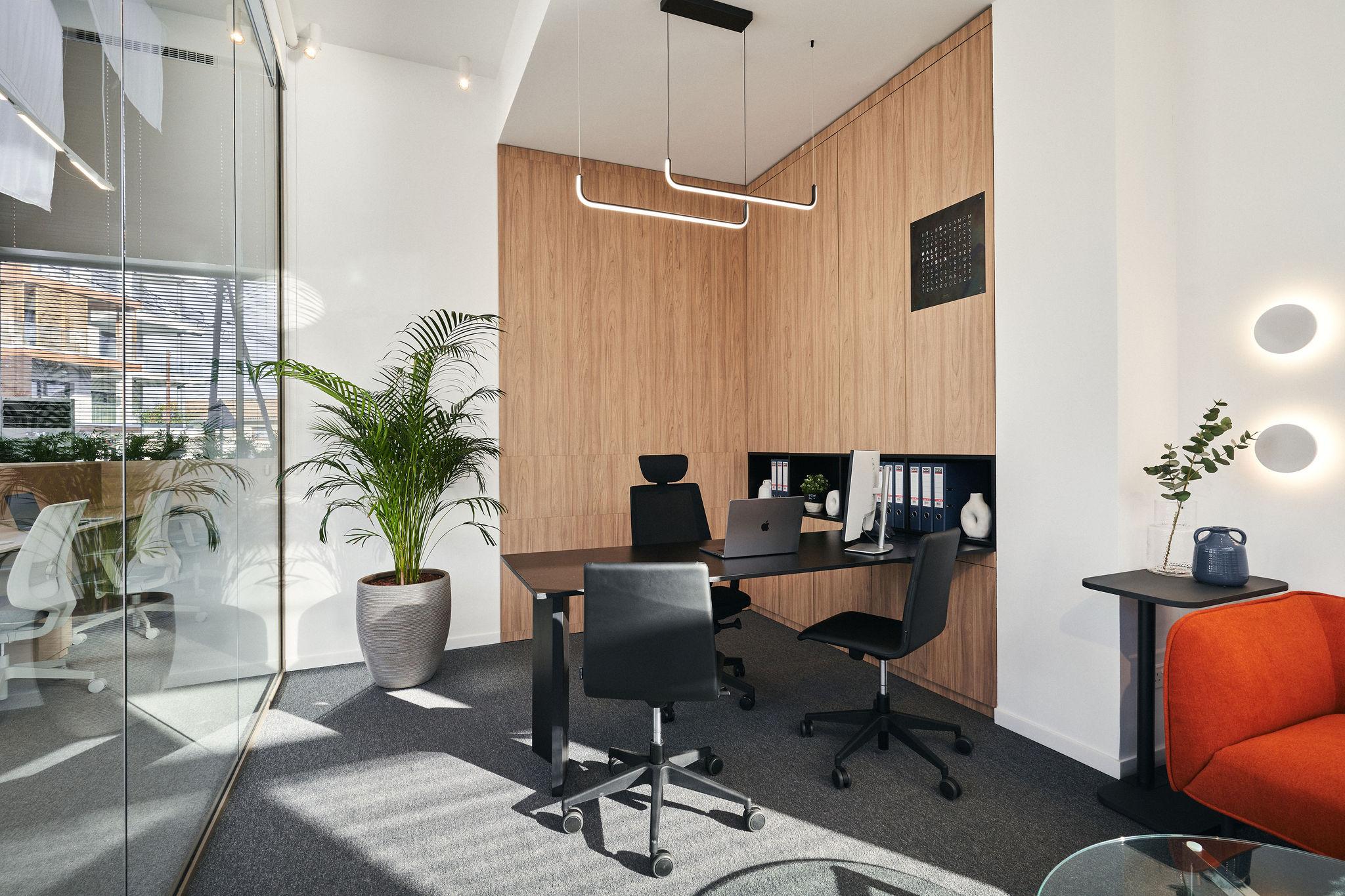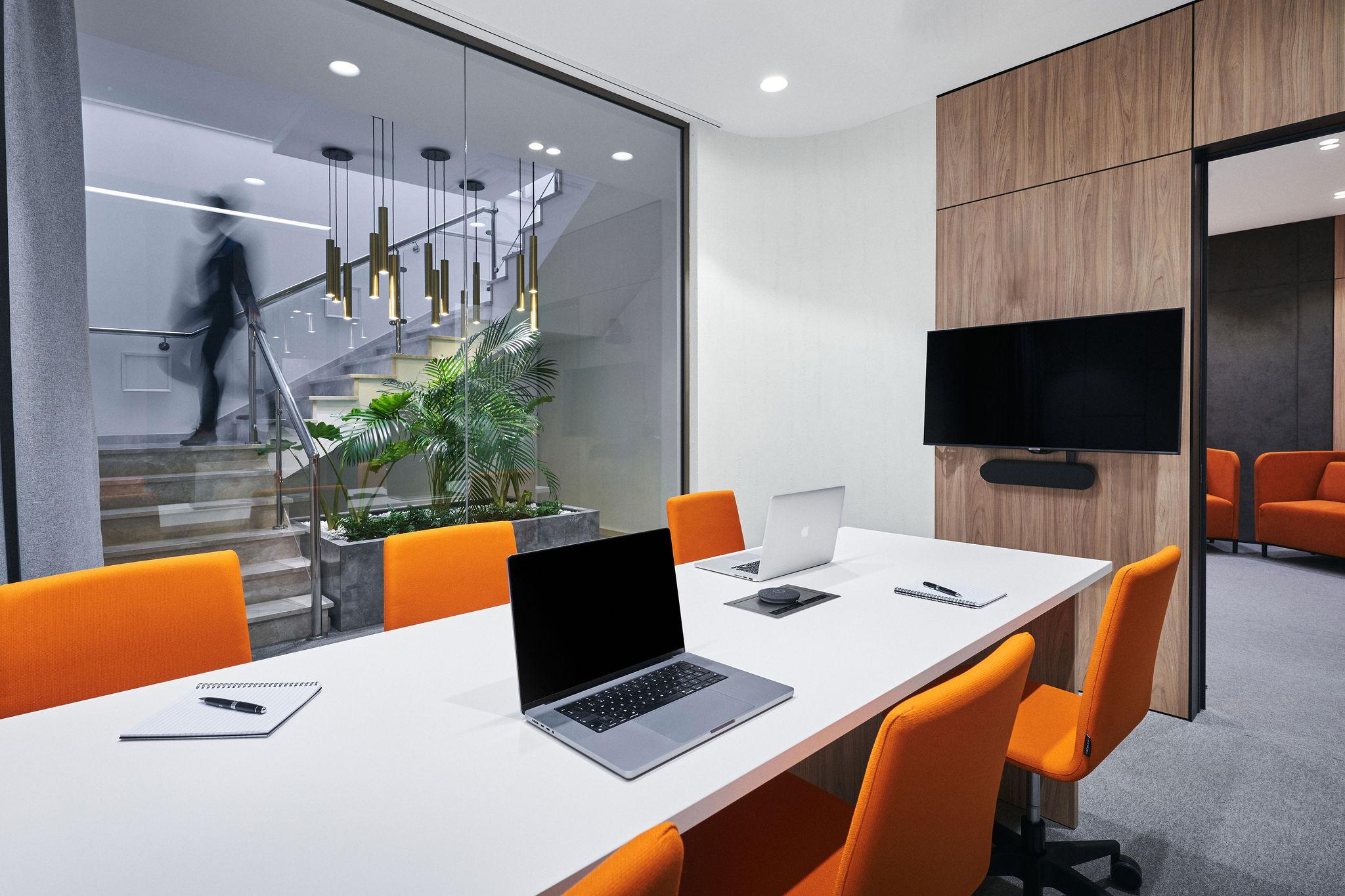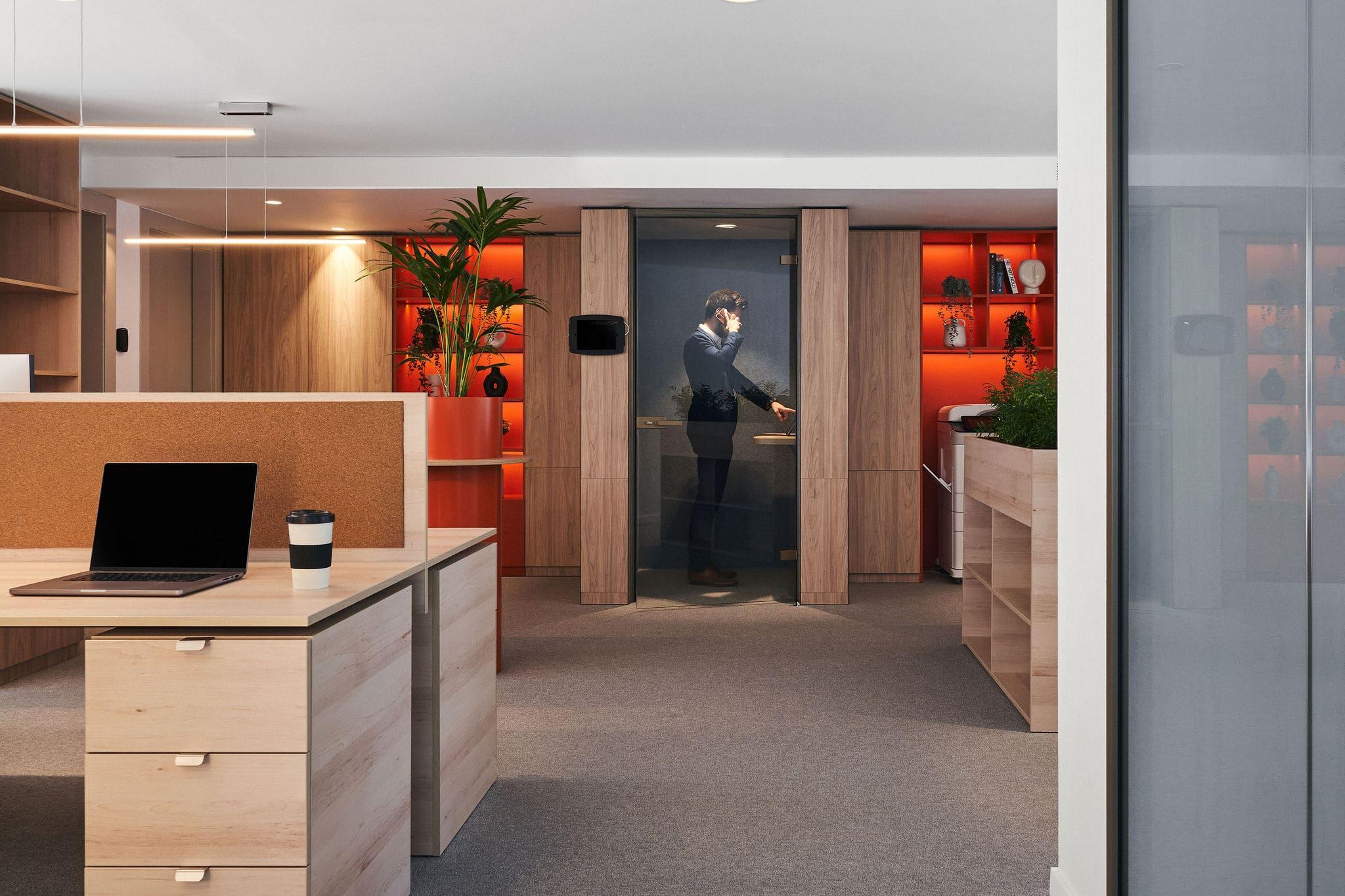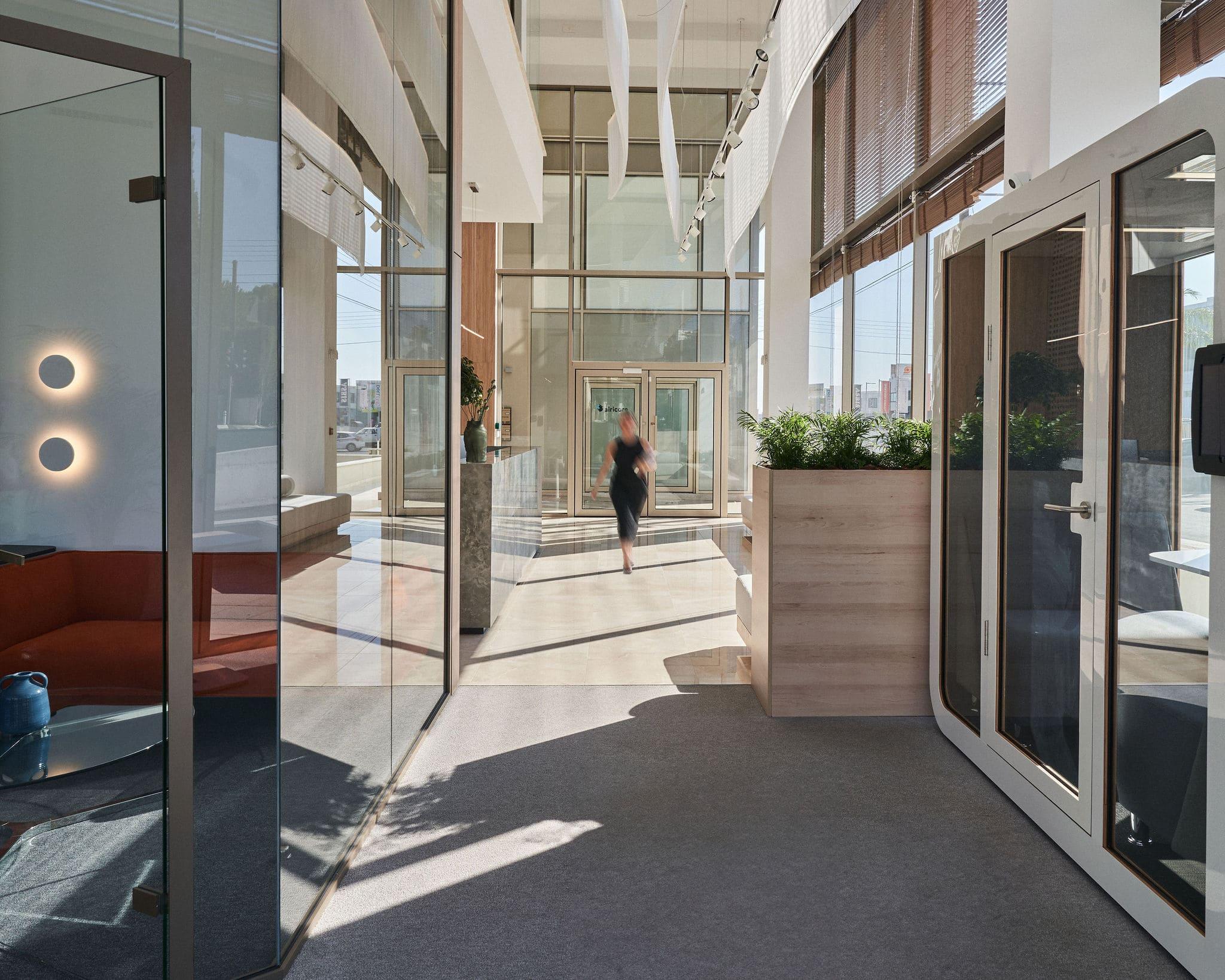A strong brand identity holds paramount importance for success in a competitive business environment.
One of the significant components in shaping a brand's image is office space design.
A professionally designed workspace speaks not only to the respect for employees and their comfort but also becomes a part of the brand's identity, its positioning, and the reinforcement of the company's authority as an employer. The design of the office space conveys subtle yet potent messages about the company's values, culture, and professionalism. Alesia Karnaukhova, CEO of ZIKZAK Architects, elaborates on how office design influences the formation of trust, brand status, and employer image.

Enalian Limassol office designed by ZIKZAK Architects
First impression and professionalism
The interior of an office often serves as the initial physical point of contact for clients, partners, and potential employees. A properly designed and thought-out space reflects professionalism, attention to detail, and high quality. Such a positive first impression sets the foundation for trust in the company's products or services.
The sequence in brand identity
A cohesive interior design that aligns with the branding elements of the company, such as color palette, logo, overall visual identity, helps enhance brand recognition. Consistency across all touchpoints, including office space, fosters a sense of familiarity and reliability, contributing to strengthening trust between clients and the company.

Office Design by ZIKZAK Architects
Reflecting values and company culture
Through well-designed office space, the core values, mission, and culture of the company are conveyed. For instance, open and hybrid layouts signify transparency and innovation, while a traditional cubicle system underscores confidentiality and conservatism. When interior design resonates with the values of the target audience, it enhances the brand's reputation and authority.
Employee morale and brand advocacy
An excellent office environment contributes to employee well-being. Satisfied employees become brand advocates, sharing positive experiences both within and beyond the company, which enhances the overall brand image.

Office Design by ZIKZAK Architects
Impact on staff recruitment and talent attraction
The work environment also influences the attraction of top talent. An aesthetically appealing and functional office reflects the company's commitment to creating a conducive environment for innovation and growth. Prospective employees are more likely to perceive a company with an outstanding office design as progressive and desirable, leading to the successful branding of the company as an employer of choice.
Adaptability and innovation
A flexible space that accommodates various work styles and evolving needs indicates that the company is receptive to new ideas and technologies. Such perception positively impacts the brand's status, positioning the company as a market leader.
Storytelling and brand narrative
Office interior design provides the opportunity to visually tell the company's story. Wall graphics, artistic installations, spatial planning, and other thoughtfully designed elements of the office convey the mission, values, stages of development, and future aspirations of the brand. This kind of storytelling fosters a deeper emotional connection with stakeholders, enhances trust, and fosters loyalty towards the company.

Office Design by ZIKZAK Architects
A professionally designed office space creates a lasting positive impression on clients, partners, employees, and potential candidates. The office interior can serve as a tool for shaping the company's image and building trust. It's not just about office interiors, but also about the future success of brands.
Read also:
- Fire Safety in High-Rise New Buildings in Cyprus
- Why do IT specialists move to Cyprus?
- Design for Sustainable Development: Eco-Friendly Office Space in Cyprus
- Behind the Scenes: 7 Secrets from an Interior Designer of Workspaces
- Top 5 Most Interesting Residential Projects in Suburbs of Larnaca
- Cypriots: Characteristics and Mentality Features

